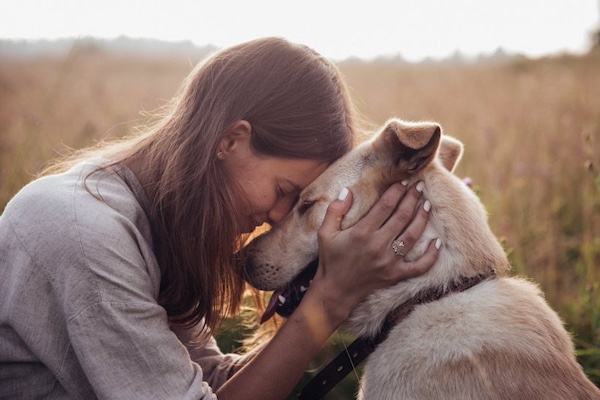When we think of training our dogs, we often focus on teaching them obedience commands or correcting unwanted behaviors. However, training is much more than a set of skills or tricks—it plays a crucial role in maintaining your dog’s mental health. Just like humans, dogs need mental stimulation to stay happy and balanced.
Training offers your dog a way to engage their mind, build confidence, reduce anxiety, and even prevent behavioral issues. In this blog post, we’ll explore the strong connection between training and your dog’s mental well-being and how incorporating regular training can improve your dog’s overall health.
How Training Provides Mental Stimulation
Training isn’t just about teaching your dog to sit or stay; it’s a powerful tool for mental stimulation. Dogs are intelligent animals, and they need mental engagement to stay sharp and satisfied. Without enough mental stimulation, dogs can become bored, restless, and even develop behavioral problems such as excessive barking, chewing, or digging.
Through training, your dog’s brain is engaged in learning new commands, solving problems, and focusing on tasks. This engagement is critical in keeping your dog mentally healthy. Much like humans benefit from activities like reading or puzzles, dogs benefit from learning new skills and practicing them. Whether it’s learning a new trick or perfecting basic commands, these challenges stimulate your dog’s mind, giving them a productive outlet for their energy.
Mental stimulation through training also prevents your dog from getting bored, which can lead to destructive behavior. When a dog has a job to do, whether it’s responding to commands or solving puzzles, their mind stays active, which helps them feel fulfilled. This, in turn, can prevent anxiety and depression that can arise from lack of mental stimulation.
Training as a Confidence Booster
Training doesn’t just teach your dog how to follow commands; it also helps boost their confidence. Dogs thrive in environments where they understand what’s expected of them. When you train your dog, you’re giving them clear guidance on what behaviors are desirable, which helps them feel more secure in their environment.
Dogs that lack confidence may show signs of fear or anxiety, especially in unfamiliar situations. Training provides structure and predictability, which can significantly reduce these feelings. When a dog successfully learns a new command or completes a task, they experience a sense of accomplishment, which builds their self-esteem. This is particularly important for shy or nervous dogs, as mastering new skills helps them feel more secure and in control.
Confidence-building exercises, such as teaching your dog to navigate obstacles, respond to commands in different environments, or interact calmly with new people and dogs, are excellent ways to boost your dog’s self-assurance. As your dog becomes more confident in their abilities, they’ll be more willing to face new challenges and experiences with a positive mindset.
Reducing Anxiety and Stress Through Training

Consistent training is one of the most effective ways to help your dog manage anxiety and stress. Just like humans, dogs can experience anxiety for various reasons, such as changes in their environment, separation from their owners, or unfamiliar situations. Training can help alleviate these feelings by giving your dog a sense of control and security.
Training provides clear boundaries and routines, which help dogs feel more at ease. When a dog knows what to expect and understands what is expected of them, it reduces uncertainty and anxiety. For example, if your dog knows the “stay” command, they’ll feel more comfortable in situations where they might otherwise feel overwhelmed, like when guests arrive or when out on walks.
Additionally, training exercises that focus on impulse control, such as teaching your dog to wait patiently for their food or respond calmly to distractions, can significantly reduce nervous energy. These exercises teach your dog how to manage their emotions and behavior, which is crucial for reducing stress.
Engaging your dog in regular training sessions also provides an outlet for their pent-up energy, which can often manifest as anxiety. By focusing their energy on learning and problem-solving, your dog is less likely to engage in stress-related behaviors such as pacing or excessive barking.
The Role of Training in Socialization
Socialization is an important aspect of mental health for dogs, and training plays a key role in helping dogs navigate social situations. Dogs that are not properly socialized can become fearful or aggressive around other animals, people, or new environments. Training helps prevent these issues by exposing your dog to a variety of social experiences in a controlled and positive way.
When you train your dog in social settings—such as in group classes or during walks around the neighborhood—they learn how to interact appropriately with others. This not only reduces their fear and anxiety around new experiences but also helps them build confidence in social situations. Well-socialized dogs are less likely to develop behavior problems related to fear or aggression as they learn to handle new environments with ease.
Training activities that promote healthy social interactions include teaching your dog how to greet people calmly, how to play nicely with other dogs, and how to behave in public spaces. By providing positive reinforcement during these experiences, you’re helping your dog associate social interactions with good outcomes, which is essential for their mental well-being.
The Long-Term Mental Health Benefits of Ongoing Training
Training isn’t something that should stop once your dog has mastered basic commands—it’s an ongoing process that offers long-term mental health benefits. As dogs age, continued mental stimulation becomes increasingly important in preventing cognitive decline. Regular training sessions help keep your dog’s brain active and engaged, even in their senior years.
By incorporating training into your dog’s daily routine, you’re providing them with the mental exercise they need to stay sharp and focused. Simple exercises like practicing recall commands, introducing new tricks, or engaging in puzzle-solving activities are great ways to challenge your dog’s mind on a regular basis. These activities help prevent boredom and keep your dog mentally agile, which is essential for their long-term health.
For older dogs, training can also help maintain their cognitive abilities and reduce the risk of conditions like canine cognitive dysfunction, which is similar to dementia in humans. Keeping their mind active through training helps maintain their quality of life as they age.
Conclusion
Training is a powerful tool that goes far beyond teaching your dog to follow commands—it’s a key component of your dog’s mental health and well-being. By providing mental stimulation, boosting their confidence, reducing anxiety, promoting healthy socialization, and maintaining mental sharpness, training plays a vital role in keeping your dog happy and balanced.
Remember, training isn’t just for young or unruly dogs—regular training sessions are beneficial for dogs of all ages. Whether you’re introducing new challenges to a young dog or helping an older dog stay mentally sharp, training should be an ongoing part of your dog’s life.
Start incorporating training into your routine today, and watch as your dog’s mental health and happiness improve, strengthening your bond and enhancing their overall quality of life.





